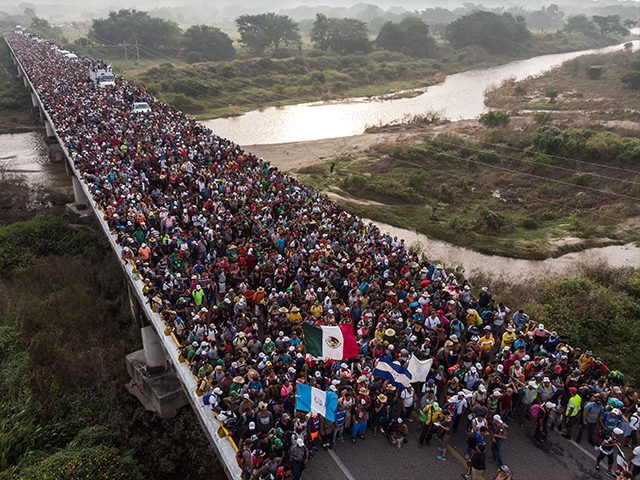The nation’s Military-Industrial Complex needs to import at least 600 million immigrants to counter the growing push by China for world power, says a forthcoming book by Matthew Yglesias, the top editor at the influential progressive website, Vox.com.
The One Billion Americans book is “a bold case for massive population growth in the name of national greatness,” says the blurb from the publisher, Penguin Random House. The press release continues:
America is in decline. Fewer children are born each year due to financial pressure. Thousands flee our iconic cities with their housing shortages and broken infrastructure. While we tie ourselves into knots trying to stop the flow of immigrants, our exhausted economy deflates the heartland’s already shrinking population. To survive China’s impending global takeover (not to mention Russia), we can’t afford to be weak. We need to get bigger, much bigger. We need one billion Americans.
The United States has a population of roughly 320 million Americans, so Yglesias’s plan would require a population boost of at least 600 million. If the migrants are imported over 20 years, his plan requires that annual immigration be raised from roughly one million legal immigrants to at least 15 million legal immigrants.
The blurb does not describe how much extra cash the 320 million Americans will have to pay for housing as the 600 million people compete for decent housing — any housing — in cities and suburbs.
The blurb is silent about how much wealth would flow from wage earners to stock investors as hundreds of millions of imported workers flood the labor market, drive down salaries, and spike the stock market.
The blurb says nothing about the politics of a country where most new immigrants would likely flow to the coastal states, boosting the relative wealth and voting power of California over Colorado, New Jersey over Nebraska, and New York over Nevada.
The blurb does not describe the likely civic chaos in a super-diverse country where American citizens would be stripped of their shared religious, cultural, and historical ties that have long been used to bind the people to each other, the elite to the ordinary, and the rulers to the ruled.
The blurb ignores alternative ideas for curbing China, for example, cutting immigration to spur Americans’ productivity, science, prosperity, political coherence, and ability to support weaker countries in Asia and Africa.
The blurb discreetly ignores the role of clever people who have helped to export jobs, technology, and wealth to China over the past 20 years:
But the blurb suggests Yglesias’s great transformation will create many opportunities for a class of clever people in the major cities — such as Matt Yglesias — to rule over ordinary Americans amid the civic divisions that Yglesias and his peers want to create:
Of course, more people requires more housing, not to mention better transportation, improved education, a revitalized welfare system, and climate change mitigation.
…
Yglesias’s website is pro-migration and anti-Trump. In August 2019, he echoed the Cold War claims that Americans’ homeland is instead a “Nation of Immigrants” with a world-changing mission that overwhelms mundane matters, such as Americans’ wages and prosperity:
Immigration to the United States has not, historically, been an act of kindness toward strangers. It’s been a strategy for national growth and national greatness.
Washington and his fellow founders could have established America as a kind of exclusive club. The present-day United States undoubtedly would still be a prosperous and pleasant nation. But our cities would be smaller, our global influence would be reduced, and many fewer of the world’s cutting-edge companies would be based here. We would suffer, as small countries tend to, from our talented and ambitious young people seeking their fortunes in bigger places abroad. With many fewer people, it wouldn’t be the great nation it is today.
While a lot has changed since Washington’s time, two fundamentals have not. The United States is still a country with a mission and a desire for greatness on the world stage. And America’s openness to people who want to move here and make a better life for themselves is fuel for that greatness.
Unsurprisingly, Yglesias breezily dismisses the abundant evidence the immigration shifts money from ordinary wage-earners to wealthy investors:
as Michael Greenstone and Adam Looney of the center-left Hamilton Project put it, “immigrants and U.S.-born workers generally do not compete for the same jobs; instead, many immigrants complement the work of U.S. employees and increase their productivity.”
In contrast, there’s much evidence — including 30 years of economic statistics — that immigration is a disguised economic policy to transfer wealth from young American wage-earners to older investors, and from heartland states to the coasts.

COMMENTS
Please let us know if you're having issues with commenting.